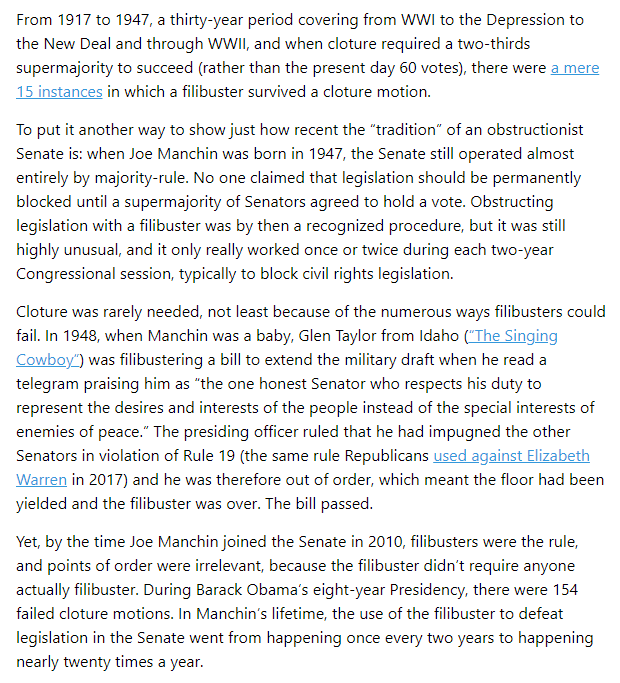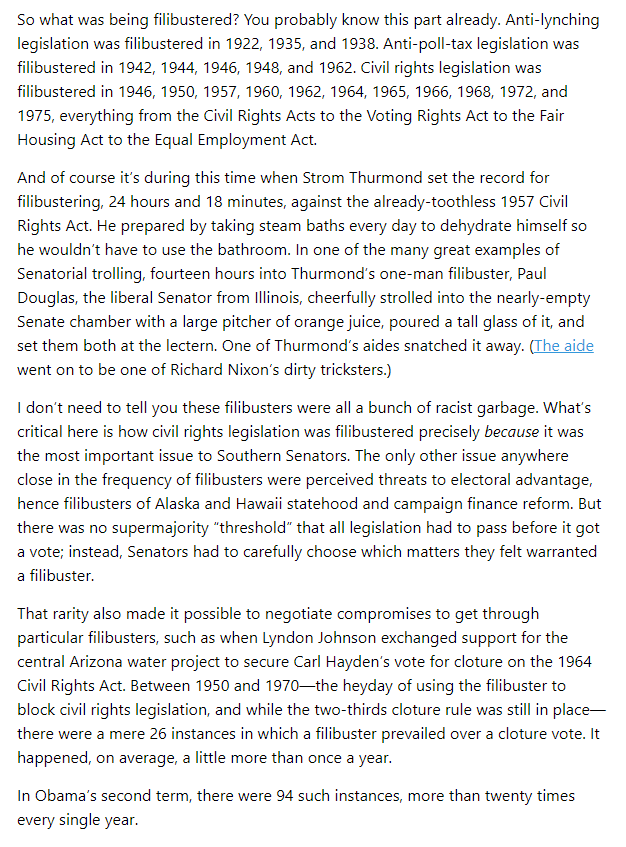
The shorter process does, however, present an opportunity to bring back the real filibuster—the talking filibuster—the way every filibuster had to be done up until the 1970s. The presiding officer just has to say, "the rules and precedents will be applied strictly."
1/5
1/5
https://twitter.com/LisaDNews/status/1481381992704974860
Real filibusters are hard. That's why you don't hear much about the filibusters of the 1893 silver bill or the Hatch Act or Alaska & Hawaii statehood: they failed.
Riddick's Senate Procedure is unforgiving. If debate ends by error or rule violation, the bill goes to a vote.
2/5

Riddick's Senate Procedure is unforgiving. If debate ends by error or rule violation, the bill goes to a vote.
2/5


The endgame of all this wouldn't be a rule change but a simple majority vote on a procedural point of order. That's how filibustering SCOTUS nominations was eliminated in 2017.
Manchin & Sinema both (absurdly) say they'd never go against the Parliamentarian's advice. So...
3/5
Manchin & Sinema both (absurdly) say they'd never go against the Parliamentarian's advice. So...
3/5

If Dems force Republicans to do a real filibuster and they mess up, and the Senate Parliamentarian agrees with a Dem point of order ending debate, what exactly would Manchin and Sinema do?
Block the John Lewis Act by voting against the Parliamentarian's advice? 🤔
4/5
Block the John Lewis Act by voting against the Parliamentarian's advice? 🤔
4/5
This is all theater, of course, and both Manchin and Sinema know it, hence their ridiculous, false, ahistorical claims. The question is: if they're put in a position where they must act—instead of talking around these issues—what will they choose?
5/5
5/5
https://twitter.com/MaxKennerly/status/1480707506712293378
• • •
Missing some Tweet in this thread? You can try to
force a refresh












